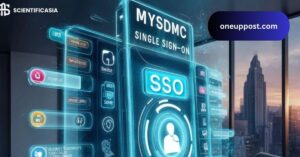Преводсч – A Comprehensive Guide to Understanding and Utilizing Translation Services!

In our globalized world, the need for accurate and efficient translation services has never been greater. Whether it’s for business, education, or personal use, people often require tools to bridge language barriers. One such tool is “Преводсч,” a term that refers to translation services that help facilitate communication across different languages.
This article explores the world of “Преводсч” (translation services) by examining its importance, applications, available tools, and how to choose the right one. It will also provide insights on the future of translation technology and answer common questions about translation services.
What is “Преводсч”?
“Преводсч” is the Bulgarian word for “translation” or “translator,” but in this context, it refers to various translation tools and services that allow users to convert text or speech from one language to another. These tools are invaluable in a world where cross-cultural communication is essential for many aspects of life.
1. Why Is Translation Important?
Translation is crucial for the following reasons:
- Global Communication: Businesses, organizations, and individuals need to communicate with people from different parts of the world. Translation makes it easier to share information across cultures.
- Access to Knowledge: Translation allows for the dissemination of information from different countries and languages, expanding access to educational resources, literature, and scientific research.
- Cultural Exchange: Through translation, people can experience different cultures, which fosters understanding and empathy across nations.
How Translation Services Work?
Translation services can range from human translators to sophisticated AI-powered tools. The key objective of any translation service is to convert content from one language into another while maintaining the original meaning, context, and tone.
1. Types of Translation Services:
Human Translators:
Professional translators offer high-quality translations that consider cultural nuances, idiomatic expressions, and context. They are ideal for translating legal, medical, literary, or technical documents.
Machine Translation (MT):
Machine translation tools like Google Translate, DeepL, and Microsoft Translator use artificial intelligence to convert text or speech from one language to another. While they are fast and convenient, they may struggle with complex language and cultural nuances.
Hybrid Translation:
Many services combine machine translation with human editing to improve accuracy. This method allows for faster translation while maintaining a level of quality close to that of a human translator.
Choosing the Right Translation Service:
When selecting a translation service, it’s essential to consider the nature of the text, the languages involved, and the purpose of the translation. Here are some factors to keep in mind:
- Accuracy and Quality: The quality of the translation depends on the complexity of the language and the subject matter. For formal documents, human translators are recommended.
- Speed: Machine translation tools provide instant results, but they may lack precision. Human translators, while more accurate, typically take longer to complete a project.
- Cost: Free machine translation tools are widely available, but professional human translation services can be costly, especially for specialized content.
- Confidentiality: When dealing with sensitive information, ensure that the service provider has appropriate security measures to protect your data.
Popular Translation Tools:
- Google Translate: One of the most popular machine translation tools, supporting over 100 languages. It’s ideal for casual translations but may struggle with complex texts.
- DeepL: Known for its high accuracy, DeepL is often regarded as one of the best machine translation tools for European languages.
- Microsoft Translator: Offers real-time text and speech translation, making it a versatile tool for various translation needs.
- ProZ.com: A platform that connects users with professional human translators for specialized translations.
- TransPerfect: A comprehensive translation service provider that offers both human and machine translation for businesses.
Applications of Translation Services:
Translation services are used across various sectors and industries to facilitate communication and ensure that information is accurately conveyed across language barriers.
1. Business and Marketing:
For companies expanding internationally, accurate translation is essential for marketing materials, websites, product descriptions, and legal contracts. Poor translations can lead to miscommunication and negatively impact a brand’s image.
2. Education and Research:
Translation allows students, educators, and researchers to access academic materials in foreign languages. It opens up opportunities for cross-border collaboration and enhances learning by exposing individuals to different perspectives.
3. Legal and Medical Fields:
In legal and medical contexts, precision is critical. Legal documents, contracts, and medical reports require exact translations to avoid errors that could have serious consequences. Certified human translators are often used in these fields.
4. Travel and Tourism:
For travelers, translation services make navigating foreign countries easier. From translating menus and signs to communicating with locals, translation tools enhance the travel experience and help avoid misunderstandings.
The Future of Translation Technology:
The field of translation technology is rapidly evolving, with AI and machine learning playing a significant role in improving the accuracy and efficiency of translation tools. In the near future, we can expect:
- More Accurate AI Translations: As AI continues to advance, machine translation tools will become more sophisticated, reducing the need for human intervention in many cases.
- Real-time Speech Translation: Devices and apps that can instantly translate spoken language will become more commonplace, revolutionizing international communication.
- Industry-Specific Tools: We’ll likely see the development of specialized translation tools tailored to industries like healthcare, law, and finance, where accuracy is critical.
FAQ’s:
1. What does “Преводсч” mean?
“Преводсч” is the Bulgarian term for “translation” or “translator,” referring to tools and services that convert text or speech from one language to another.
2. What are the best translation tools available?
Some popular translation tools include Google Translate, DeepL, Microsoft Translator, ProZ.com, and TransPerfect, depending on your specific needs.
3. Are machine translations accurate?
Machine translations have improved significantly but may struggle with complex texts, idiomatic expressions, and cultural nuances. For highly accurate translations, human translators are still preferred.
4. How can I ensure the quality of a translation?
For critical content, opt for professional human translation services or use hybrid translation tools that combine machine translation with human editing.
5. What industries use translation services the most?
Industries like business, marketing, education, law, medicine, and tourism frequently rely on translation services for clear communication across languages.
6. Is machine translation free?
Many machine translation tools, like Google Translate, offer free services, but more advanced tools or human translation services often come with a fee.
7. Can I use translation tools for legal documents?
While machine translation can provide quick translations, legal documents should always be translated by certified professionals to avoid errors and misinterpretations.
8. How long does it take for a human translator to complete a project?
The time it takes for a human translator to complete a project depends on the length and complexity of the text. However, human translations are generally slower than machine translations.
Conclusion:
Translation services, or “Преводсч,” play a vital role in our interconnected world, facilitating communication and breaking down language barriers.
Whether you need a quick translation for casual use or a professional translator for specialized content, there are various options available to meet your needs. As technology advances, the future of translation looks promising, with more accurate, accessible, and efficient tools on the horizon.
Also Read:
- Argyle Middle School Principal Dies – Stay Informed Today!
- Rongokurais Boon – A Comprehensive Guide!
- Coomerpart – The Ultimate Guide to Fun and Enjoyable Social Gatherings!
- Soaper.TV – A Comprehensive Guide to the Ultimate Streaming Experience!
- Mountain Valleys Nyt Crossword – Tips, Strategies, And Insights!






